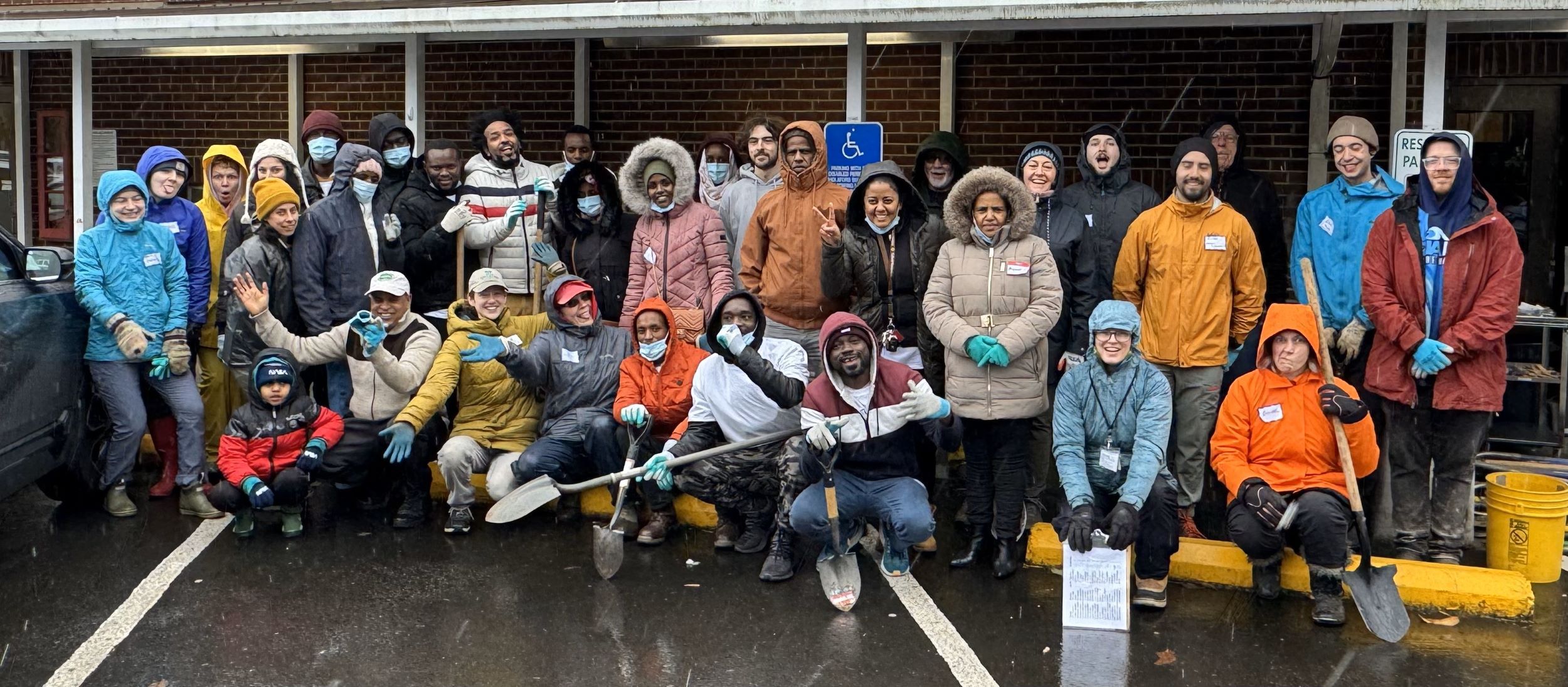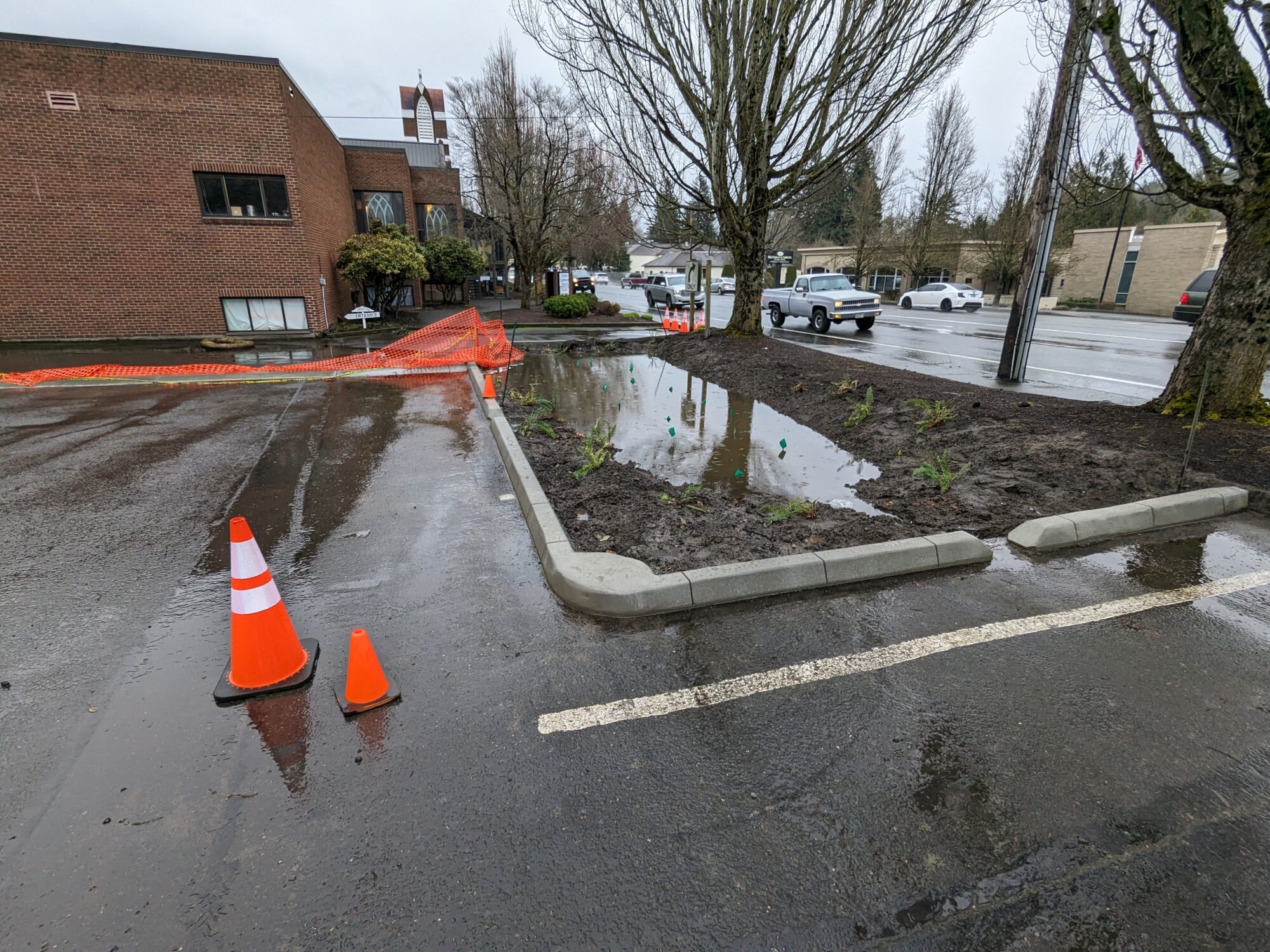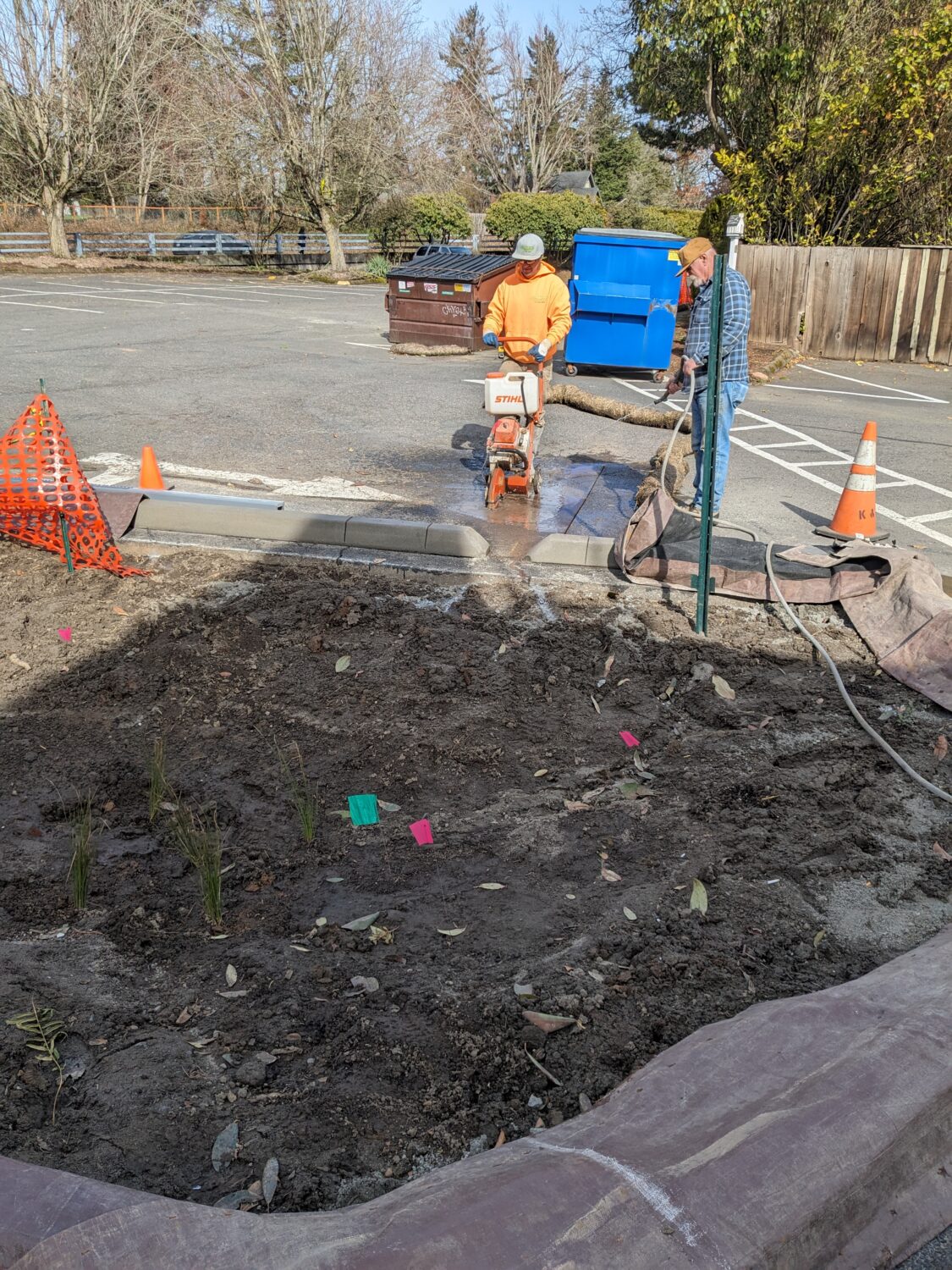
Written by Elizabeth Brosig
This spring the rain gardens at Trinity Lutheran Church were completed! At our annual Watershed Wide Event, a snowy Saturday morning in March, over thirty volunteers and staff from JCWC came together to plant native plants in four rain gardens and a planter in the parking lot. Soon after, contractors took advantage of the sunny weather to install curbs, a speed bump, and a trench drain. The speed bump and trench drain help to direct flow into the rain gardens that would otherwise flow past.
All of this hard work is to help reduce stormwater entering the storm drains and improve water quality going into Johnson Creek. The storm drains in the Church parking lot drain to the City’s storm collection pipes, which drain directly into Johnson Creek. The rain gardens will capture stormwater from half of an acre of paved parking lot and allow the water to slowly infiltrate into the soil. Stormwater runoff collects a variety of pollutants, including oil, tire particles, and trash; by collecting the stormwater in rain gardens, these pollutants are filtered out of the water before entering our waterways. As it snowed everyone had a chance to see the rain gardens function first hand as stormwater flowed in from the parking lot pavement and slowly soaked into the soil.


There are many locations in the Johnson Creek watershed where stormwater is collected in stormwater facilities and piped directly to Johnson Creek, bringing all of the pollutants picked up on the way. The Council is looking to continue installing rain gardens throughout the watershed to help reduce pollutants entering the creek.
A huge thank you to our funders (City of Gresham, East Multnomah Soil and Water Conservation District, and Oregon Watershed Enhancement Board), the Trinity Lutheran Church, and everyone that came out to help complete this project. And a special thank you for Flatline Construction for providing and installing the trench drain for free.

